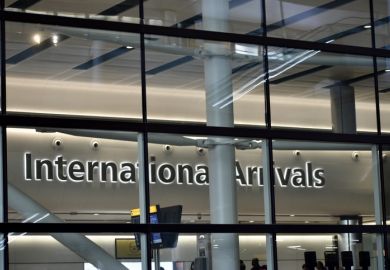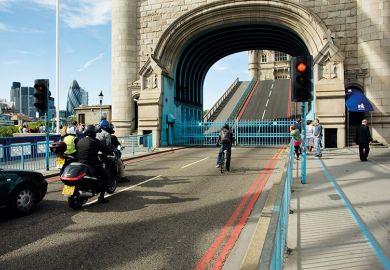Source: Alamy
Winners’ circle: libraries housing the papers of US leaders (clockwise from above) Lyndon Baines Johnson, George W. Bush, George Bush Sr and Gerald Ford
In a monolithic 10-storey building on the campus of the University of Texas at Austin is an unlikely vision of the late Lyndon Baines Johnson, standing at a lectern telling jokes.
On closer inspection, it turns out to be a life-sized, Disney-like audio-animatronic version of the Texas-born US president. It is a memorable part of the LBJ Presidential Library and Museum, which also boasts his Lincoln Continental presidential limousine.
It may seem unscholarly, and indeed, the automated Johnson used to be leaning on a fence and wearing ranch clothes and a cowboy hat before curators dressed him in a more dignified suit during a 2012 renovation. But presidential libraries also house millions of documents prized by historians, and they attract influential speakers and throngs of visitors. They are also objects of prestige for US universities and colleges, which clash fiercely for the privilege of housing them.
At least five universities vied for the last one – the $250 million (£150 million) George W. Bush Presidential Library and Museum – before it ended up at Southern Methodist University, also in Texas. The George Bush Presidential Library and Museum is at Texas A&M University and Gerald Ford’s is on the campus of the University of Michigan.
Now the competition has begun over where the Barack Obama library and museum will be built, and the battle is even more intense and seemingly as politically divisive as his presidency.
“Presidential libraries advance universities’ mission of really being the bastions of history,” said Mary Case, university librarian at the University of Illinois at Chicago and co-chair of the committee at the university that is proposing to host the Obama library. “The opportunities for teaching, for programming, are rich, to attract key players and to bring people in who might not have come to your campus before.”
More than two years before the end of Obama’s presidency, formal proposals were due this month to the private foundation that will underwrite the library – government money is not used – and a decision is expected in early 2015.
The University of Hawaii wants to host the facility, as Hawaii is where the president was born. So does Columbia University in New York. But the real battleground is Chicago, which Obama served as a senator from Illinois and where he taught at The University of Chicago Law School. It is also where his wife is from and their daughters were raised. There are no fewer than six proposals to put the library in Chicago, three from universities.
The University of Chicago has hired Susan Sher, First Lady Michelle Obama’s former chief of staff, to help with its bid, which calls for building the library not on its campus but nearby in the city’s predominantly black South Side.
That proposal has attracted opposition from community groups in another black neighbourhood, Bronzeville, which complain that the plan would not do justice to Obama’s legacy.
The home of many black civic and business leaders and artists, Bronzeville would be a better place to showcase America’s first black president, neighbourhood leader Harold Lucas told the Chicago Tribune.
So sensitive has the situation become that the university did not respond to repeated requests for comment for several days. It eventually released written statements from Ms Sher and its president Robert Zimmer, saying that a presidential library would create “significant and sustained economic opportunity” on the South Side.
A bid from Chicago State University would put the library in the Pullman neighbourhood, where President Obama worked as a community organiser, while the University of Illinois at Chicago proposes to build the facility on its Near West Side campus.
Back at the University of Texas at Austin, the LBJ Library has just hosted a summit to mark the 50th anniversary of the passage of Johnson’s Civil Rights Act, and four other presidents were among the attendees.
That event “exemplified the university’s continuing partnership with the library and museum”, said the university’s president William Powers Jr, “and the value of hosting a presidential library on a college campus”.





